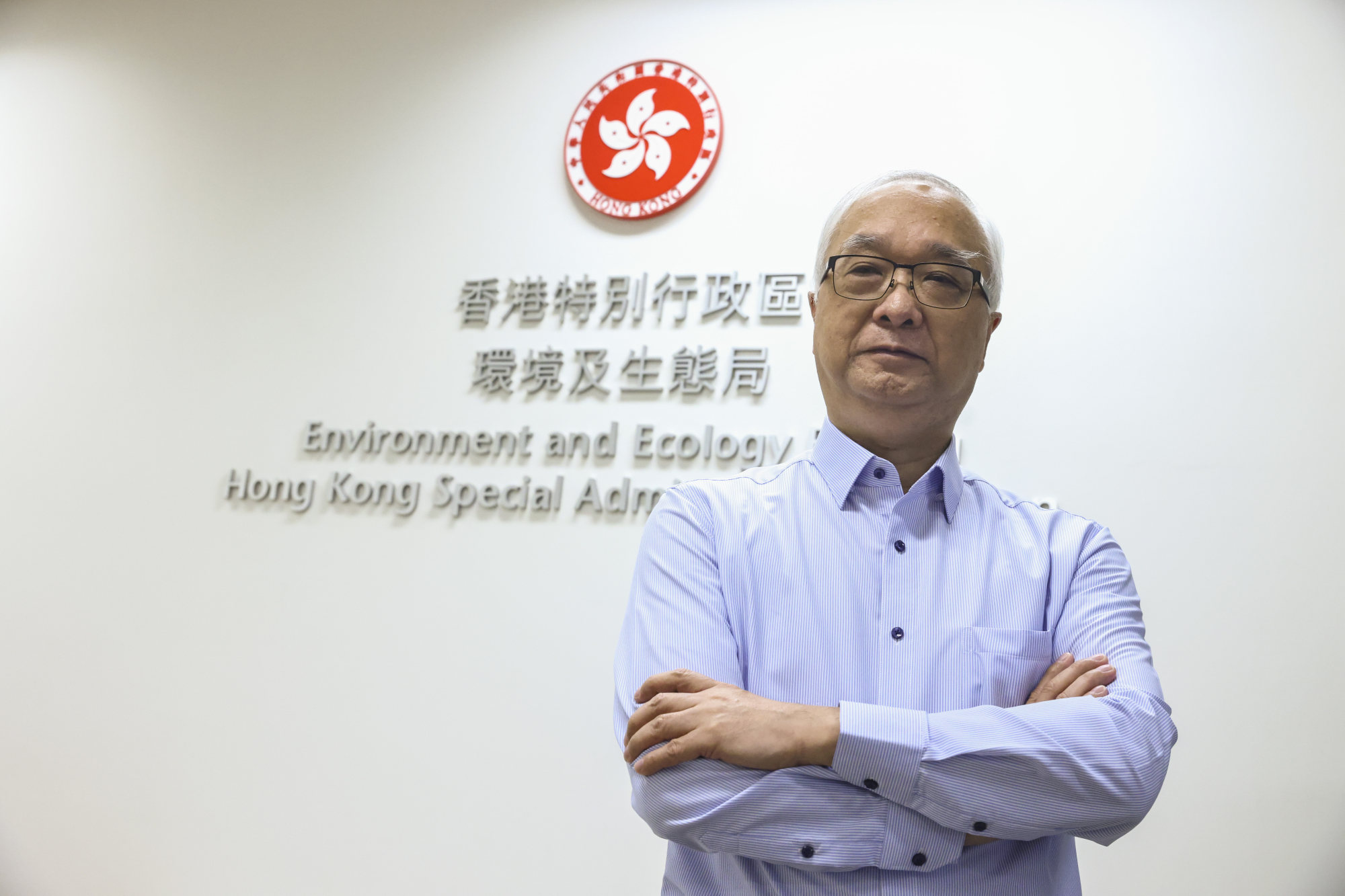
Hong Kong to follow mainland China on regulations on Japanese imports if water from Fukushima nuclear disaster released into Pacific
- Japan plans to release over 1.25 million tonnes of treated waste water contaminated by wrecked Fukushima Daiichi Nuclear Power Plant into Pacific
- Since nuclear disaster, Hong Kong has prohibited imports of vegetables, fruits, milk, milk-based beverages and milk powder from Fukushima prefecture
If mainland China steps up regulations on food products imported from Japan when it releases treated water from Fukushima into the Pacific next year, Hong Kong will follow suit, the city’s environmental minister has said.
The remark made by Secretary of Environment and Ecology Tse Chin-wan on Tuesday referred to Tokyo’s plans, which were revealed last year, to release over 1.25 million tonnes of treated waste water contaminated by the wrecked Fukushima Daiichi Nuclear Power Plant into the Pacific in 2023.
Tse said at a Legislative Council panel meeting that, because marine pollution involved international relations, the administration had expressed its concerns to the foreign ministry’s Hong Kong office.

“We will carry out closer ties and communication with the mainland and see what the mainland will do politically in the future. In this regard, Hong Kong will definitely be politically consistent with the mainland,” he told lawmakers.
Tse said the Centre for Food Safety tested more than 760,000 food samples imported from Japan from March 2011 to December 2021. None exceeded the radiation guideline levels suggested by the Codex Alimentarius under the United Nations Food and Agriculture Organisation.
After the Japanese authorities announced the radioactive waste water discharge plan, the Hong Kong government requested more information and specific information from the country and paid close attention to the International Atomic Energy Agency’s assessment, he added.
Hong Kong prohibited the imports of all vegetables, fruit, milk, milk-based beverages and milk powder from the Fukushima prefecture after the 2011 nuclear disaster.
Food from four nearby prefectures – Ibaraki, Tochigi, Chiba and Gunma – is only given entry after obtaining a radiation certificate and an exporter’s certificate issued by the Japanese authorities.
Japan regulator OKs release of treated Fukushima water
The Centre for Food Safety has published a monthly report, which includes radiation surveillance data on products from Japan.
Government statistics have shown that food imports from Japan amounted to about 1.5 per cent of the total food supply in Hong Kong last year. Aquatic products and poultry eggs had the highest import volume, accounting for about 6.3 per cent and 9.7 per cent of the city’s total food imports respectively.
Tse said at the panel meeting that authorities would continue to communicate with local food importers to ensure the industry understood the plan and made preparations as soon as possible.
Tokyo announced in April last year that it intended to discharge the water used to cool the nuclear reactors at Fukushima nuclear power plant into the ocean after treatment in 2023, causing concern among neighbouring countries, including China and South Korea.
Environmental groups and fishery operators have also warned that the waste water discharge would compromise the region’s marine ecosystem, the food chain and food safety.
Ex-Fukushima bosses ordered to pay US$94.8 billion over nuclear disaster
In Beijing, the Ministry of Foreign Affairs has raised grave concerns and strong opposition to the plan, urging Japanese authorities to consult stakeholders and relevant international organisations.
The Consulate-General of Japan in Hong Kong said it “strongly” hoped city authorities could lift the import restriction on food products from the country since all the samples sent for inspection had proved safe for consumption.
“Japan has been taking measures strictly abiding by relevant international law and working closely with [the International Atomic Energy Agency] to give due consideration to international practice, and will continue to do so,” a spokesman said.
“Food safety for Japanese food lovers in Hong Kong is as important to the Japanese government as food safety for the Japanese people … We will also continue to explain to Hong Kong, based on a scientific manner, that the safety of Japanese food products is ensured.”
